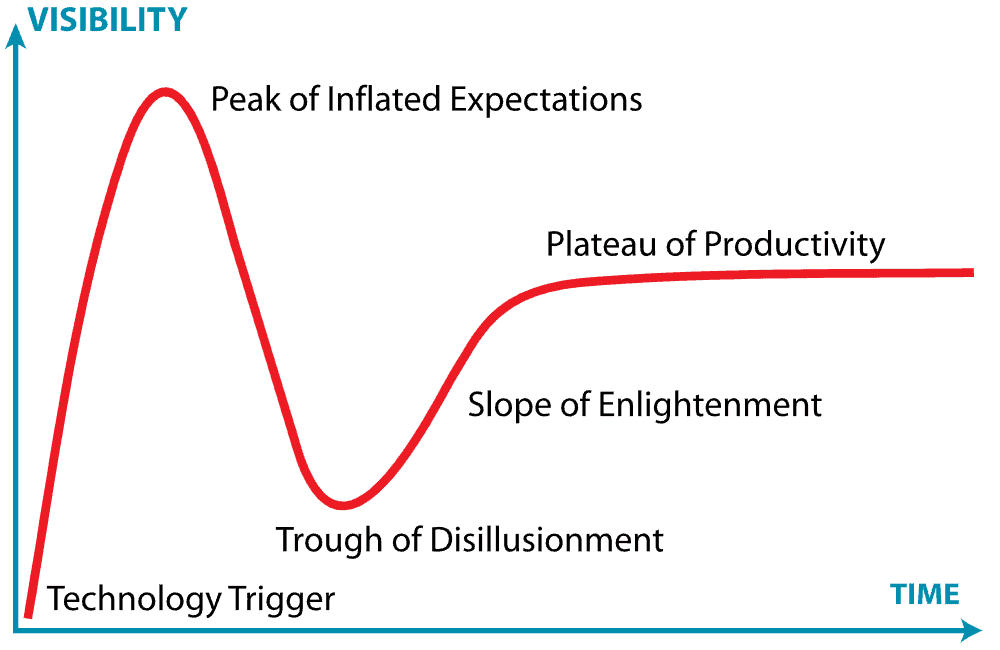AI will change everything about how we work.
I’ve been watching AI unfold, and it’s been a wild ride. When ChatGPT launched in late 2022, the excitement was off the charts. Everyone thought we were on the cusp of something huge.
Then – seemingly – reality hit.
I saw my friends, peers, colleagues try these new AI tools, get excited, and then… they stopped using them.
Some people got suspicious about AI’s real value. Others flat-out rejected it, worried about job losses or privacy invasions.
This isn’t new. We’ve seen this pattern before with other big tech breakthroughs:

Remember when we all thought mobile phones would give us cancer? AI’s no different. It’s got massive potential to make our lives better, but there’s a real risk of leaving people behind.
So, what’s really going on here? Let’s break it down:
AI brings a mix of opportunities and challenges.
On the upside, it can boost productivity across industries and personalise education and healthcare.
It will speed up some scientific research and, make creative tools more accessible to everyone.
And the flip side:
AI will widen the gap between tech-savvy people and others.
Just like with the introduction of electricity, the automobile, the internet, social media, some jobs WILL disappear.
How many blacksmiths or wheelwright do you know personally?
There are very genuine ethical concerns about AI making decisions. It can and is being used to spread misinformation.
Many people don’t get how AI works or what it can do. This leads to fear and misuse.
There’s a lack of clear rules for AI development and use. We’re in uncharted territory. Unknown unknowns.
We’re not sure how to make AI benefits available to everyone.
Now, here’s what we can do about it:
Education is key. You need to understand AI to use it well. We should push for more AI education programmes.
Try out AI tools. See what they can do. Don’t just accept everything at face value. Question, test, and think critically about the results.
We need to hold AI developers accountable. Ask questions about how AI systems make decisions. Push for transparency and fairness. Don’t sit on the sidelines. Join discussions about AI’s role in society. Your voice matters in shaping how we use this technology.
Support initiatives that make AI technologies accessible to diverse groups. We need to make sure AI benefits everyone, not just a privileged few. This might mean advocating for policies that promote digital inclusion or supporting organisations that bring AI education to underserved communities.
Here’s the bottom line: AI is not going away. It’s got the potential to solve big problems and make our lives easier. But it also comes with risks. We’re at a crossroads. The future of AI isn’t set in stone. It’s up to us to shape it.
We need to approach AI with both enthusiasm and caution. We need to work together to create an AI future that works for everyone. You have a part to play in this. Stay informed. Ask questions. Get involved. The future of AI is in our hands.






